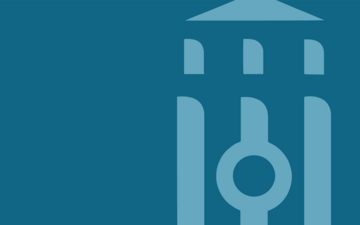How the American Justice System Sacrifices Innocent Defendants

by guest blogger George Thomas, author of The Supreme Court on Trial: How the American Justice System Sacrifices Innocent Defendants
DNA has conclusively proven the innocence of hundreds of prisoners, yet thousands, if not tens of thousands, of innocent prisoners remain behind bars because no DNA evidence exists or it has not yet been tested. There are only a few movements in the US legal community, such as the Innocence Project, which are actually involved in helping to change this. My new book argues that due process of law is most importantly about protecting innocent suspects and defendants. The book shows how the current system too often fails at protecting the innocent, and it offers a realistic blueprint for reform.
As any lawyer can tell you, advocates do not really want an objective truth to be revealed. Instead, they want the jury to buy their version of the truth. In presenting the case, therefore, advocates often hide, distort, or deny the truth. I like to quote Jerome Frank’s pithy critique of the adversary system, from half a century ago, as “the equivalent of throwing pepper in the eyes of a surgeon when he is performing an operation.” The overarching question that the book seeks to answer is whether there is a better way to process criminal cases.
_______________________
- Click here for more information on The Supreme Court on Trial.
- Learn more out THE INNOCENCE PROJECT online.
- Join The Innocence Project on Facebook.
_____________________
In examining how Western cultures have historically identified those guilty of crimes, I start with the ancient Greeks. By the time we reach the eighteenth century, the British and American systems of justice had evolved into what lawyers call an “adversarial system.” In that kind of system, advocates for both parties examine and cross-examine witnesses in court as the way to reveal the truth about guilt. But I ask, why would that be the best method to get at the truth?
I have tried to make the book both accessible and fun to read by telling lively, engaging stories about the men and women behind the movements in the law that I describe. Do you want to know how England developed trial by jury? Then be entertained by a story of Henry II (great-grandson of William the Conqueror) that begins when he transported an army in tiny boats across the English Channel during a powerful winter storm. For evidence of how juries too often fail innocent defendants, meet a black man wrongfully convicted of raping a white woman in Chattanooga, Tennessee in 1906. Other characters in the drama are the judge and lawyers who tried to provide him a just and fair trial, the jury that cried out for more evidence but ultimately convicted anyway, the sheriff who saved him once but not the second time, and the mob that lynched him while his case was on appeal to the United States Supreme Court.
Part of the received wisdom in legal and pop culture is that the American adversarial system is superior to the continental systems where judges conduct both the investigation and the trial, making lawyers largely an after-thought. By examining this premise with a fresh perspective, I found much to value in the French system. Getting at the objective truth is the goal of all the actors in the French criminal process, even the defense lawyers. It is probably no coincidence that documented cases of wrongful convictions in France are rare indeed.
The last chapter of my book describes a set of reforms that would protect the innocent at a reasonable cost. Some of the proposed reforms are both provocative and controversial. For example, I would create a pool of “criminal trial specialists” who would be available both to prosecute and defend criminal cases. It is difficult to imagine a state legislature taking routine criminal cases away from district attorneys. Still, thinking about that possibility gives us insight into the ways that our adversarial system obscures the truth. Other reforms that I suggest—for example, having judges review criminal cases before trial and also after conviction—are more likely to be adopted.
Most Americans think that the way Perry Mason or F. Lee Bailey tried criminal cases is the only, or the best, way to uncover the truth. My book is an antidote to our complacent assumption that an adversarial system can be trusted to deliver the goods on truth.”
George Thomas III is a Distinguished Professor of Law and Judge Alexander P. Waugh, Sr. Distinguished Scholar at Rutgers-Newark Law School where he teaches criminal procedure and criminal law.
More information can be found regarding wrongful convictions at the Innocence Project. Image courtesy of Innocence Project New Orleans.




